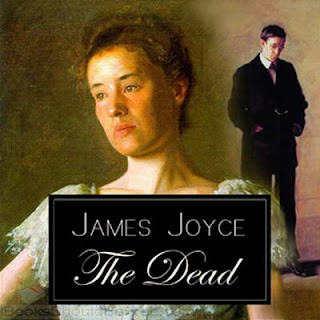Name the ten best short stories you've ever read. It's a difficult task, like trying to name the ten best songs you've ever heard.
If you've read as many stories as I have, it can't be done. The best you can do is to name ten best stories which are personal favorites right now, while acknowledging the fact that there are many more ambitious, acclaimed, and possibly better written stories at large.
We can't help but think of those classics we have read again and again with adjacent biographical, historical, and critical works at hand. Works like James Joyce's "The Dead," Jack London's "To Build A Fire," and Anton Chekhov's "The Lady With The Pet Dog." We can't pick between Hemingway's "Big, Two-Hearted River" and "A Clean, Well-Lighted Place," so we'd include them both.
You might disqualify such fictional works such as Joseph Conrad's "Youth" and "Heart of Darkness" as novellas rather than long short stories. You might disqualify such film transformations as Rod Serling's "The Monsters Are Due On Maple Street," otherwise long among my personal favorites.
Two of my favorites are certainly not well known--but they should be. They are Richard Russo's short story, "Horseman," which I blogged about at this link, and Stephen Dobyns' "A Happy Vacancy," the lead story in his collection entitled Eating Naked.
I've reread "Horseman" several times now, and I can see the horseman of the title in different ways. For one thing, he is the guardian between our real selves and the selves we try to project outwardly to the world. Or he may simply represent our real, hidden selves. This seems to fit with the way author George Saunders and literary scholar and author Charles E. May discuss the art of the short story (see this link).
"A Happy Vacancy" starts out as a satire about an academic poet in the James Dickey mode who takes himself and his poetry far too seriously. One day he is killed when a large pig suddenly falls out of the sky and crushes him. The circumstances are explained, and the subsequent comic reactions of the academic community are satirized, but then the story strikes an entirely different cord and its meaning deepens.
As I say, the opening of the story is ironic, but the narrative then reveals the vacant emptiness of that very irony as the poet's widow, Harriet, emerges as the protagonist--giving the story a surprising minor key and a major lift.
Harriet's life changes. She comes to realize that the ironic humor bantered by her husband and about her husband were both forms of judgment, as was his former seriousness:
"She thought of her husband's seriousness, how he wore it like a garment. Most often his laughter had been ironic or sarcastic or superior. His laughter had been judgmental and, as a result, all his laughter had been serious. . ."
She leaves the college to work in a hospice. There, she escapes her former life while working on herself.
"Seriousness, said Harriet, often exists as something we want to show other people. We want others to think us serious, which suggests a fear of not being sufficiently respected, of not being taken seriously. What does seriousness get us? It neither delays our deaths nor makes them easier to bear."
A doctor at the hospice, after listening to her arguments, asks, "What is the opposite of seriousness? Frivolity?"
"Most literally, perhaps, but I think the opposite of such a seriousness is love, because love accepts all possibilities, whereas seriousness only accepts what it sees as correct. Perhaps I work at the hospice for purely selfish reasons. I work to improve the quality of my love."
"That seems pretty serious," the doctor says.
"I'm not against seriousness. I'm against the earnestness of seriousness. I want to go beyond it. I want seriousness to be an element in my life and not its reason for being."
The story ends after a conversation Harriet has with one of the patients at the hospice, which evokes laughter:
"It was neither a guffaw nor the hysterical shriek of nervousness. It was the laugh of someone whose seriousness had been overthrown, the laugh that erases every other concern."
A place beyond irony or the material illusion of ego, a happy vacancy, you might say. A cold and a broken hallelujah maybe, but a hallelujah still.
"And doesn't this sustain us? Doesn't it provide the strength to let us bear up our burden and continue our mortal journey?"










No comments:
Post a Comment